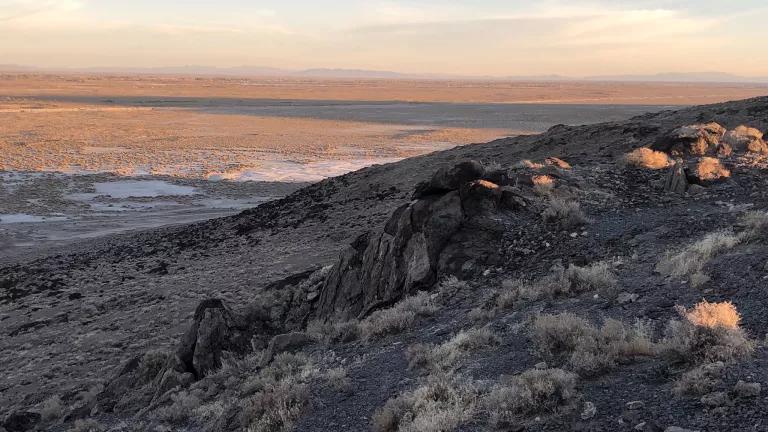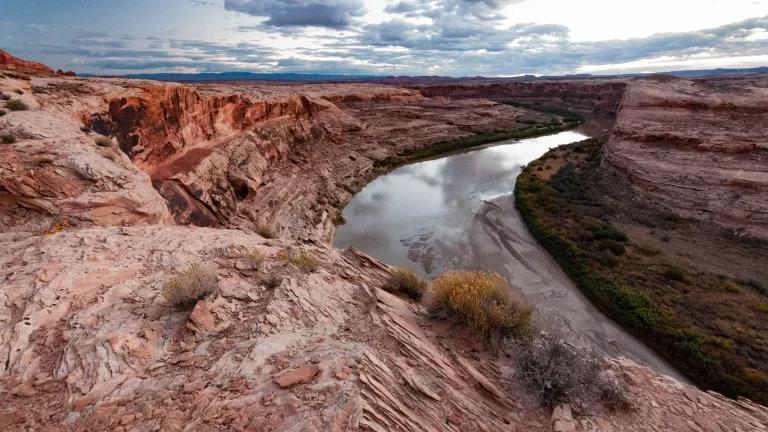Don’t Bomb the Bighorn
Nevadans won’t stand by as the future of their public lands is hijacked by out-of-state interests.

About 30 miles outside of Las Vegas lies the biggest national wildlife refuge in the lower 48. Bighorn sheep, ancient petroglyphs, stunning vistas that stretch for miles and disappear into the horizon. And then there’s the bombs.
Part of the surreally beautiful Desert National Wildlife Refuge—850,000 acres in the western half of the refuge—is used for target bombing and other exercises as part of the U.S. Air Forces’ Nevada Testing and Training Range.
Every 20 years the agreement that enables the military to use part of the refuge is slated for renewal. Over the last few years the Air Force has advanced a proposal to not only renew their use agreement but expand it considerably by 300,000 acres, greatly reducing protections for endangered bighorn sheep, and reducing tribes’ historic access to sacred sites.
By June 2020, after months of intense advocacy by environmentalists, tribes, veterans groups and local constituents, and hard work by the Nevada delegation, it seemed that an agreement had been reached that would keep the status quo rather than let the military expand their operations in the refuge.
But last week Representative Rob Bishop (R-UT) introduced an amendment to the National Defense Authorization Act that would have handed over jurisdiction of the refuge lands currently used for training—850,000 acres—to the military, reducing Desert National Wildlife Refuge to a refuge in name only.
This totally unacceptable proposal was soundly defeated this week in Congress thanks to the work of the Nevada delegation and a wide coalition of Nevada advocates working to protect the integrity of the refuge. Representative Steven Horsford (D-NV) introduced Horsford Amendment 342 which grants the Department of the Interior primary jurisdiction over the Desert National Wildlife Refuge, increases access for the U.S. Fish and Wildlife Service and Tribal communities, while allowing the military to conduct missions deemed necessary to national security.
The resounding success of this amendment proves that Nevadans won’t stand by as the future of their public lands is hijacked by out of state interests.



